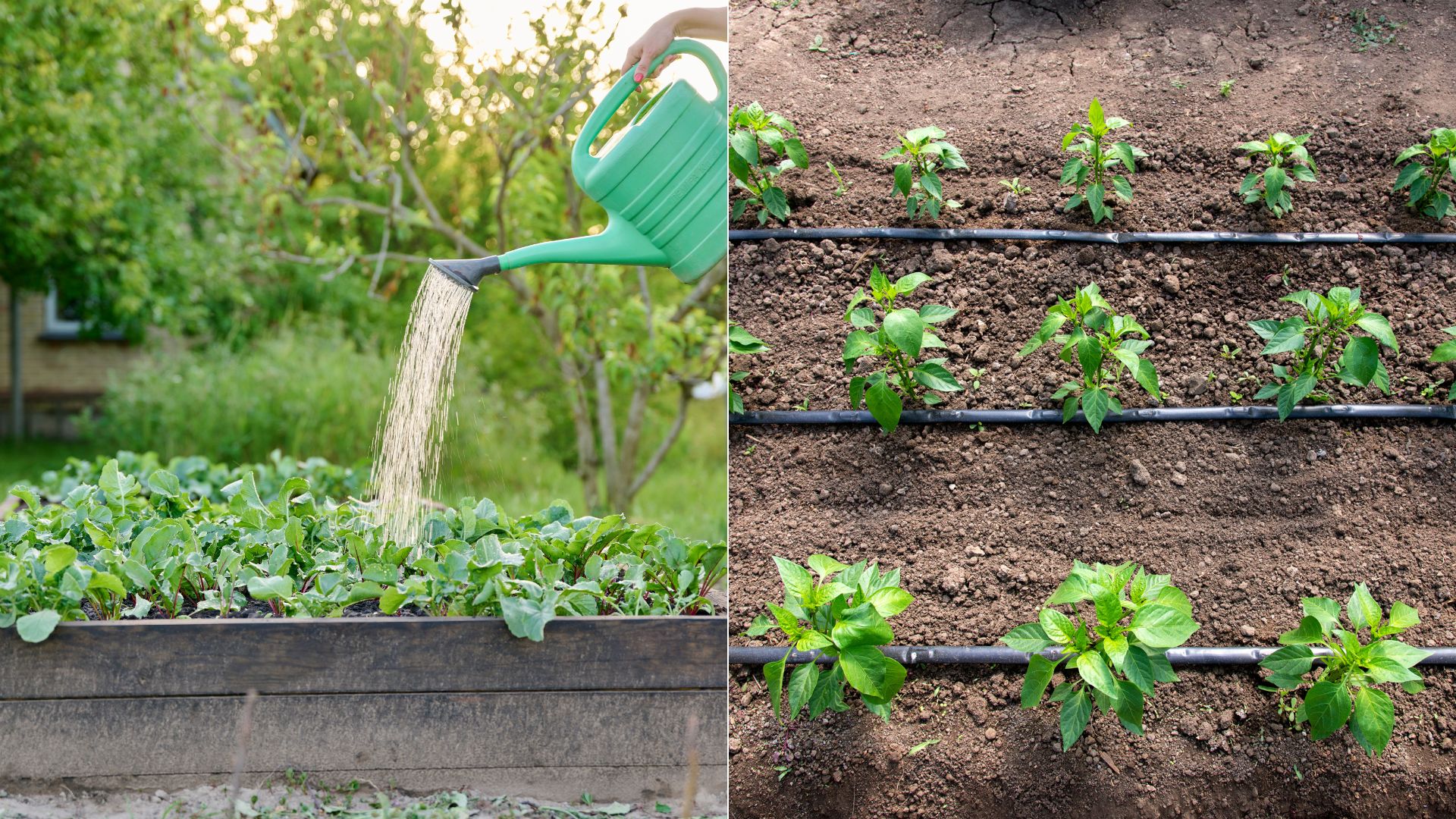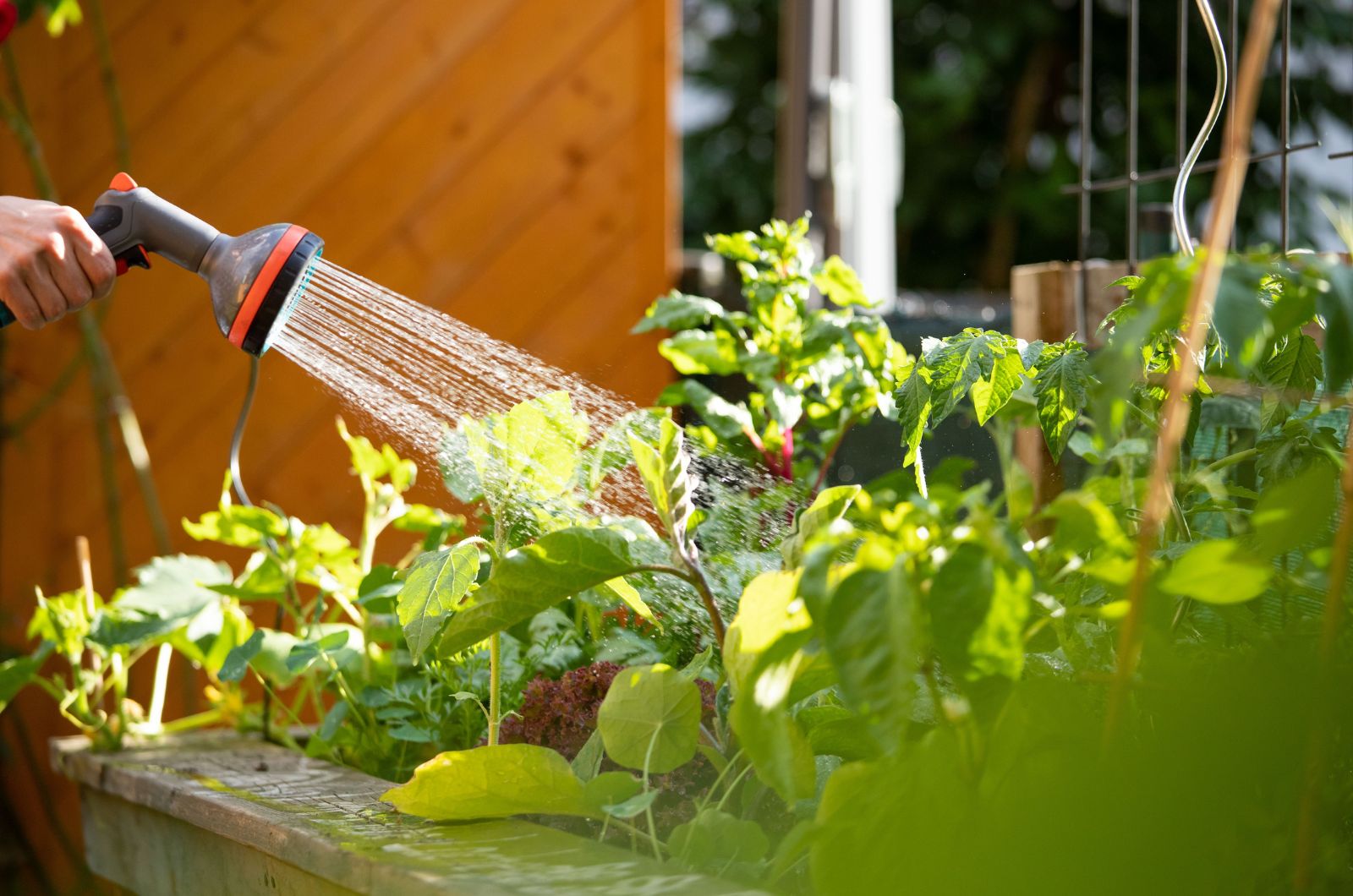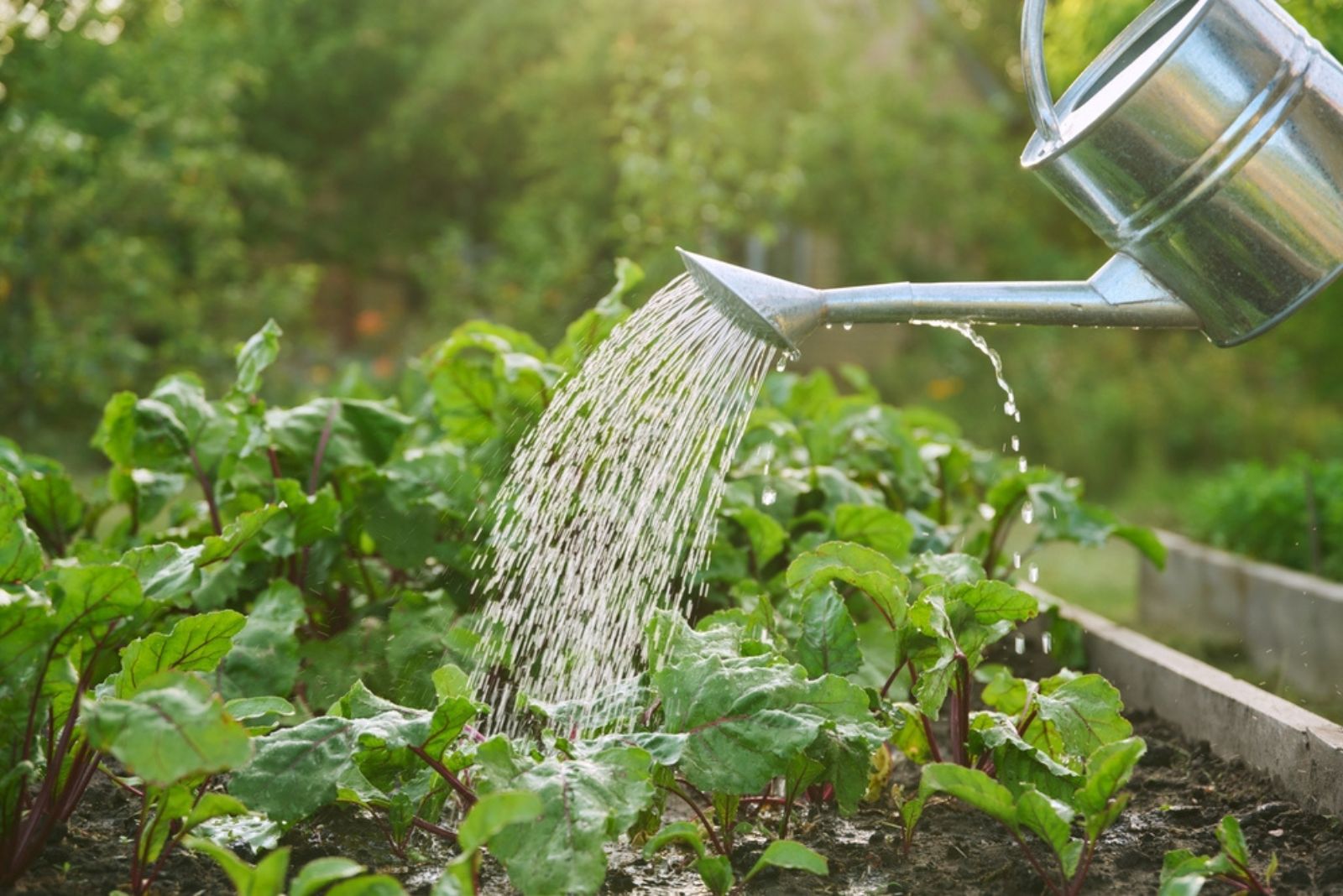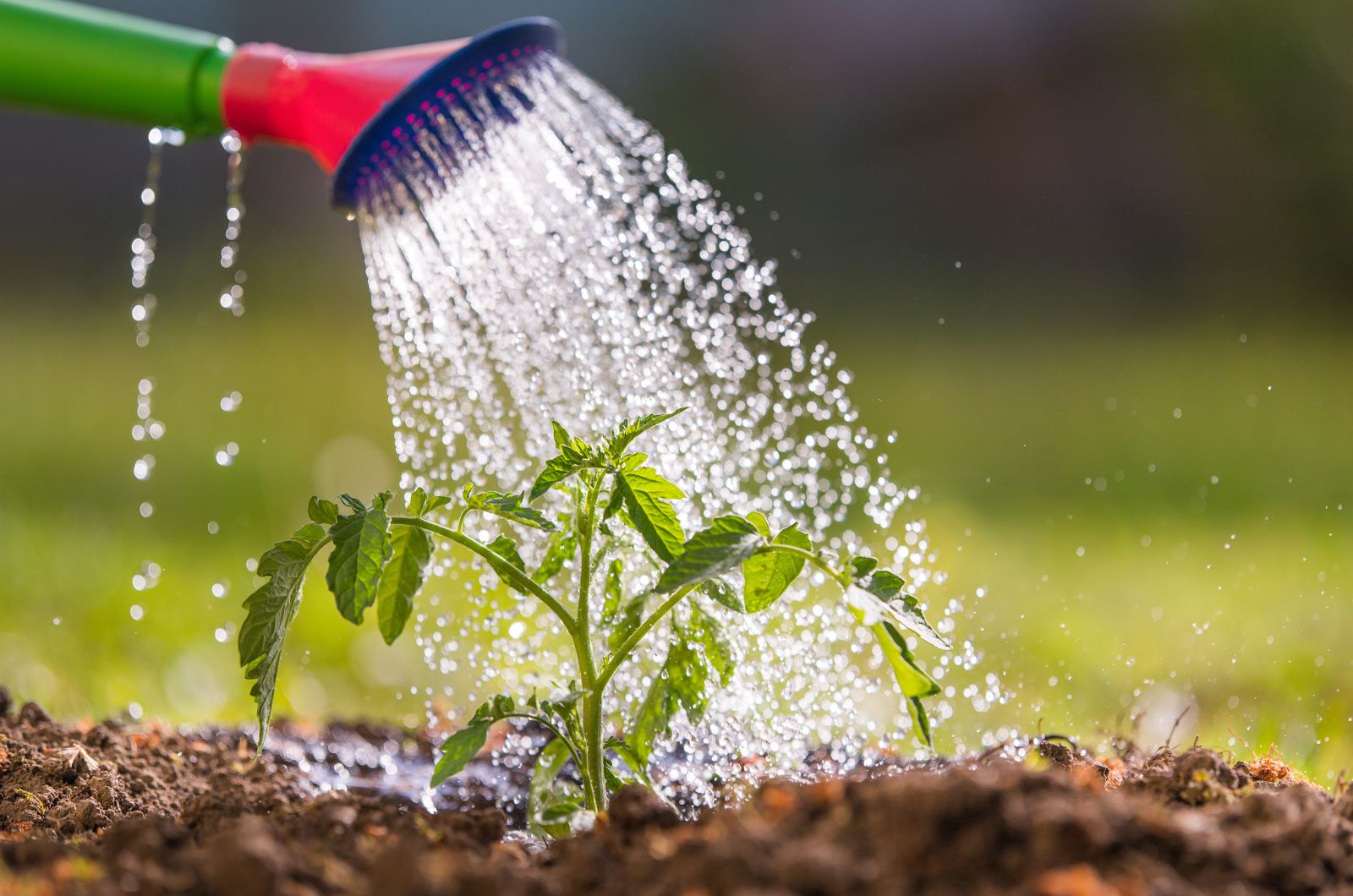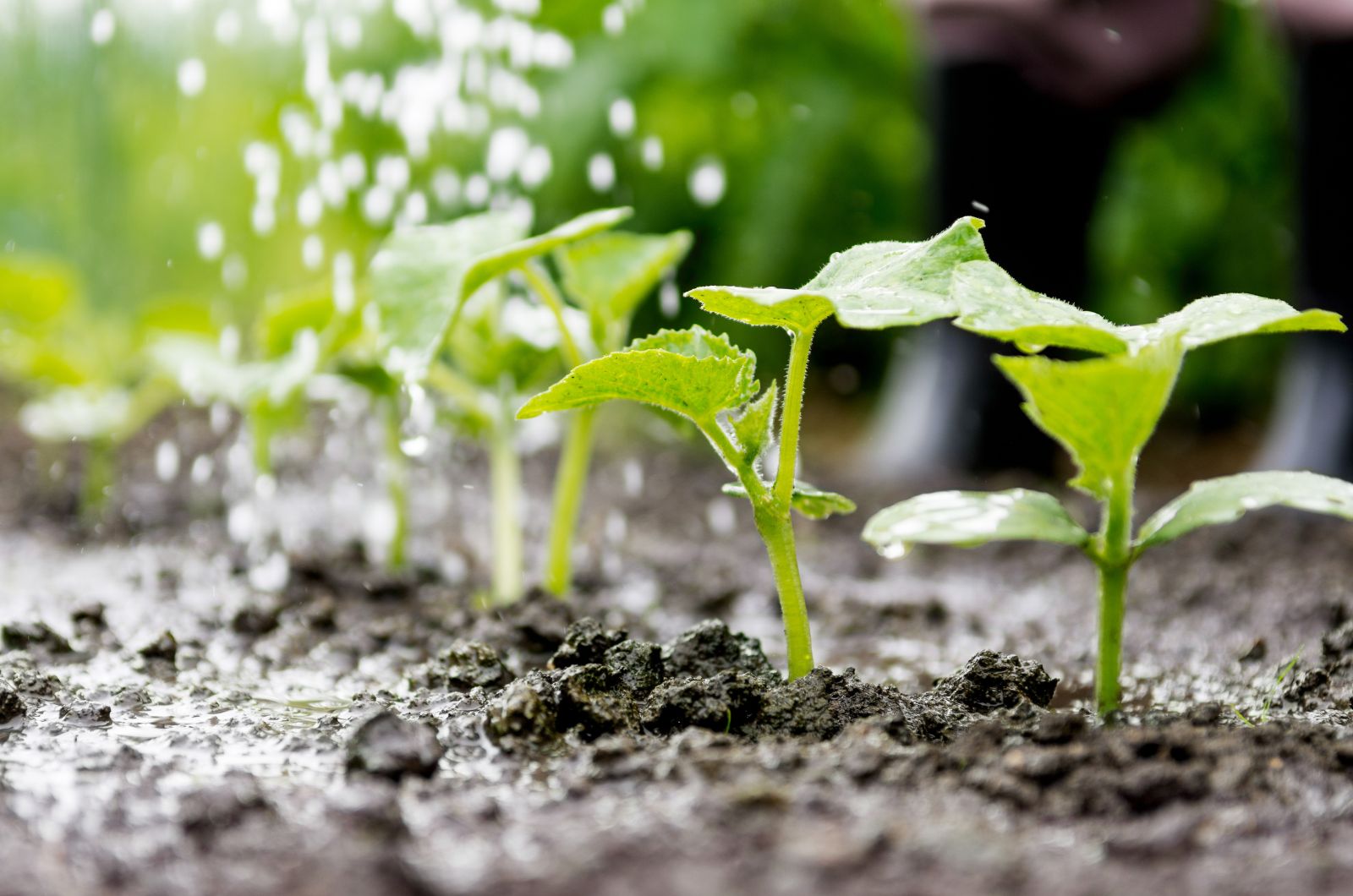I always say that it’s worth every second you spend caring for your vegetables. Needless to say, homegrown veggies taste amazing and the fact that they don’t contain any chemicals only makes things better.
However, growing these plants can be challenging for beginners, and watering may be one of the hardest aspects to figure out.
The frequency, amount, and best time to water are all factors you should consider when creating a watering schedule.
Don’t worry, I’ve got you covered! Let’s see how often you should water a vegetable garden!
How Often To Water A Veggie Garden
One thing is certain; vegetables have different watering needs, depending on the species.
However, there are certain things they all have in common. For instance, they all need more or less water depending on the weather conditions and the type of soil they grow in.
Temperature range and the amount of rainfall will change the watering needs of every veggie.
Regarding soil type, if it’s sandy and enriched with free-draining materials, you’ll need to add water more frequently. I recommend adding ingredients that retain more moisture, such as compost or organic matter.
You can either mix compost or organic matter in the soil or put a layer over the soil surface. This will regulate moisture in the soil and the roots will develop healthily.
Generally speaking, vegetables need approximately an inch or two of water weekly. They won’t need additional watering during rainy weather but you’ll need to increase watering frequency during hot summer days.
If the temperatures are extremely high, you may need to water your veggies every 2-3 days. You should also start tracking the weather; checking the forecast regularly will make this job way easier.
Consider purchasing a rain gauge and harvesting rainwater for your plants, if possible.
Best Watering Technique
One thing that many growers forget is that the technique employed when watering also affects the watering schedule. It’s important to realize that your plants will benefit more from deep watering.
If you water lightly and frequently, the roots may not receive enough water. This is a common garden watering mistake. The best idea would be to water less frequently but give your vegetables a good soak.
You can aid soil moisture regulation and decrease the evaporation rate by putting a layer of mulch over the soil.
How To Check Soil Moisture Content
Experienced gardeners know when it’s time to water simply by observing soil color. Well, the story for beginners is a little bit different.
Luckily, there are some simple techniques that can help you determine moisture. One of the oldest is putting your finger in the soil; if it’s dry, add water, if it’s still moist, come again tomorrow.
The other, and more precise method, is using a moisture meter. One of the biggest benefits of using this device is that it can help you avoid overwatering your veggies, which can have lethal consequences.
How Often To Water Veggies In A Raised Bed
Growing vegetables in raised beds has many benefits but bear in mind that the watering needs of plants change when cultivated in this setting.
You’ll need to water your raised beds with veggies more frequently, especially during summer. The explanation is actually pretty simple; these beds are elevated and water evaporates faster.
Additionally, when you add water, it can run through the soil faster and increase the plant’s sensitivity to drought.
You can fix this issue by adding organic matter or compost to the soil and applying a layer of mulch.
Watering Frequency For Container-grown Vegetables
Container gardening is an excellent option for those who like homegrown veggies but aren’t lucky enough to have large gardens.
You should consider a few things regarding watering pot-grown vegetables. First, you need to know that water evaporates faster from pots generally.
Factors such as pot material, temperature, and light exposure may increase the water evaporation rate even more.
Most veggies will benefit from watering two to three times per week during the season. However, watering frequency will most likely increase during hot summer days so you’ll need to check on the soil moisture level more often.
I recommend checking the growing medium once a day during the summer to protect your veggies from dehydration.
Use some of the methods for determining moisture described above and always water your container-grown vegetables deeply. The telltale sign of a well-watered potted veggie is water coming down the drainage holes in the bottom of the pot.
Watering Freshly-planted Vegetables
The initial stages of the plant growing process are seed germination and the seedling stage and the plant needs a lot of energy during this time.
This means that your vegetables need more water in these stages to develop healthily. Bear in mind that the root system isn’t fully established at this point and roots can’t pull up a lot of moisture from the ground.
As a result, they can quickly dehydrate if there’s no moisture on the soil surface.
Check on your newly-planted veggies every day and you may even need to water twice a day during the hot summer days. You should follow the same procedure if you transplanted seedlings.
This way, you’ll encourage the development of the root system and healthy new growth above the soil surface.
The Best Time Of Day To Water Veggies
You’ve seen a lot of factors that affect watering frequency for vegetables. The last thing to discuss is the best time of the day to irrigate.
The simplest instruction for this is water in the morning! The easiest way to explain this is to understand the water evaporation rate during different parts of the day.
Soil is relatively cool in the morning and when you add water, the moisture will stay longer and your plants will have enough time to soak up just as much water as they need.
The worst time to water your plants, no matter the species, is during the heat of the day because water will evaporate fast, which increases the risk of dehydration.
I know that many of us can’t really fit into this schedule, so if you can’t water in the morning, do it in the evening. Pay attention not to wet the leaves because they can’t lose water during the night, which increases susceptibility to fungal diseases.
If you’re one of those people who don’t have a lot of time and can’t plan anything ahead, water at any time of the day but make sure to add water around the plant’s base.
Consider a DIY drip irrigation system; it’s cost-effective, requires minimum effort, and will protect your veggies from dehydration.
If you are a beginner gardener and you want to start growing vegetables, I highly recommend you start with a smaller garden. This will allow you to learn more about watering, how to check if your veggies need water, and the quality of your soil.
Follow our guidelines for determining moisture content and pay close attention to the technique you employ and the time of the day when you water your vegetables. I’m sure you’re gonna make it and have the best possible harvest!

